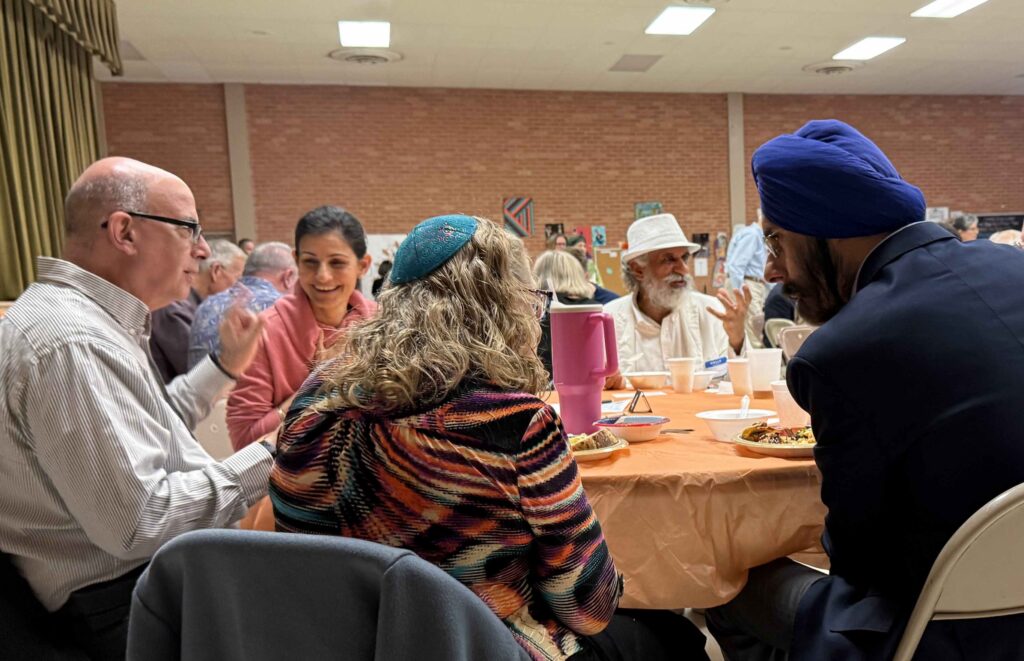
Last week, I shared about our new mission statement at Paths to Understanding:
“Gathering Neighbors and Growing Trust.”
This new language isn’t just words. It’s shaping how we organize our work and where we put our energy. To live out our mission, PTU is focused in three areas:
1. Local Practice, Shared Tools
At the heart of our work is the practical act of bringing neighbors together. This happens around tables, in neighborhoods, and between groups who may not often meet.
Through the Potluck Project, Let’s Go Together, and Youth Engagement, we create spaces where people build trust face-to-face. We also learn from these local experiences and turn them into toolkits so that others—whether in Washington, Maryland, or Kentucky—can adapt this work in their own contexts. We are working on developing trainings, both in-person and on Zoom, to help with this.
2. Stories that Inspire
When people hear stories of trust and connection, it opens their imagination for what’s possible. Our media work helps lift up those stories and share them more broadly.
Through Challenge 2.0, Wisdom from Our Neighborhood, and Go and Do Likewise, we highlight voices, experiences, and examples that inspire courage and spark hope. These stories ripple outward, encouraging people far beyond a single table or gathering. Sharing stories that inspire goes back to the beginning of Rabbi Levine and Father Treacy’s work through the Challenge TV program, their books, and their teaching to groups. We now continue this work with journalist Jeff Renner hosting our TV show Challenge 2.0, change makers sharing their know-how on the podcast Wisdom from our Neighborhood, and teaching and discussion circles based on my books.
3. Public Leadership and Civic Partnerships
Finally, our mission calls us to help strengthen the larger civic fabric. We know trust doesn’t grow only between individuals or groups—it must also be nurtured in the systems and institutions that shape our shared life.
That’s why PTU co-leads work with Seattle University’s Center for Ecumenical and Interreligious Engagement and the Faith Action Network. We are working with them to organize a set of round table conversations with respected leaders of wisdom communities to name the challenges before us – and face them together.
It’s why we help build the Washington State Civic Innovation Network, support the Skagit County Civic Hub, and take part in the Inter-Movement Impact Project at the national level. These partnerships expand the reach of our work and connect local practice to broader movements for civic renewal. We are growing in partnership with organizations such as Better Together America, Braver Angels, and many others. This work, informed by the Rippel Foundation’s Vital Conditions, set’s the stage for bringing people together across all lines of difference. The goal here is to help foster Rachel Kleinfeld’s fourth strategy to meet this moment: Build a broad-based, multi-stranded pro-democracy movement rooted in local action.
This is not partisan work. It is about public values and strengthening the process by which people make decisions together. In a divided time, the challenges feel, and indeed are, immense.
The Arc of Our Work
Together, these three areas form a cycle:
- Local Practice, Shared Tools — where trust is born in real relationships.
- Stories that Inspire — where hope and imagination spread.
- Public Leadership and Civic Partnerships — where systems and networks make space for trust to grow.
This is how we live into our mission of “Gathering Neighbors and Growing Trust.”
There is one last thing I need to say: There is no single strategy to address the issues we are facing. I hope that those engaged in good, but insufficient work, can both sharpen each other’s work and support one another’s contributions.
Next time, I’ll share some things we have been learning about our theory of change. It needs to hold the tension between the world as it is how and how that relates to the world we envision.
